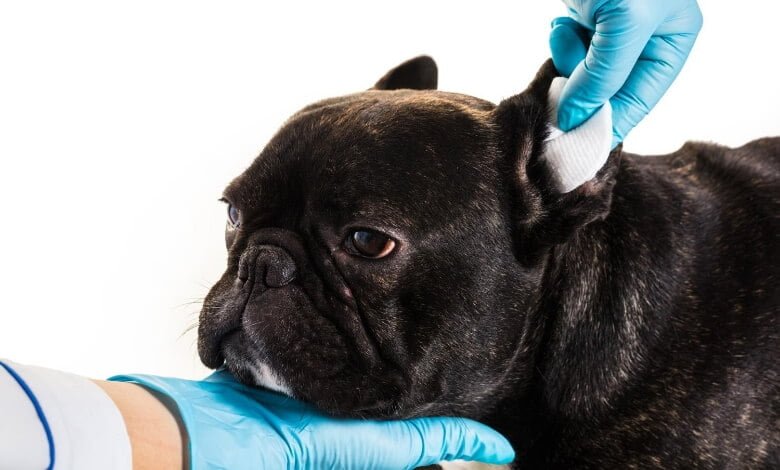Scabs on Dogs’ Ears: What to Do?

Uncover the secret to banish scabs from your furry friend’s ears using these surprising, fast-acting remedies!
Table of Contents
Welcome, dog lovers! Today, we’re going to discuss a common concern that many pet parents face – scabs on dogs’ ears. Our furry friends rely on us to take care of their health, and addressing this issue promptly is crucial for their well-being. In this blog post, we will dive into the causes of these scabs, when to consult a veterinarian, and effective home remedies and care techniques. So, let’s get started!
Understanding the Causes of Scabs on Dogs’ Ears
Before we jump into remedies, it’s essential to understand what could be causing those pesky scabs on your furry friend’s ears. Several factors can contribute to this problem, and identifying the root cause is vital in effectively treating the issue.
Common Causes
- Allergies: Dogs, just like humans, can develop allergies. Environmental allergens, such as pollen or dust mites, can irritate their ears and lead to scabs. Additionally, food allergies can also manifest through skin reactions, including scabs on the ears.
- Ear Infections: Ear infections are a common cause of scabs, especially when accompanied by intense scratching or head shaking. Bacterial or yeast infections can cause discomfort and result in scabs forming on the ears.
- Insect Bites or Stings: Just as insect bites can cause itching and irritation on our skin, they can also affect our furry friends. Insects like fleas, ticks, or even bees can leave their mark, leading to scabs on dogs’ ears.
- Skin Conditions: Dogs can suffer from various skin conditions, such as mange or dermatitis, which can affect their ears. These conditions often result in itching, redness, and inflammation, leading to scabs.
Identifying the Root Cause
Observing your dog’s symptoms and accompanying signs can help in determining the underlying cause of the scabs on their ears. Keep an eye out for these common indicators:
- Itching and scratching excessively, indicating potential allergies or irritants.
- Noticeable redness, swelling, or inflammation around the affected area.
- Discharge or a foul odor from the ears, characteristic of an infection.
- Hair loss on the ears, which could suggest a skin condition or persistent scratching.
When to Consult a Veterinarian
While some scabs may heal with home remedies, it’s important to know when it’s time to seek professional help. Consulting a veterinarian is essential in diagnosing the root cause and providing the most appropriate treatment for your furry friend. Here are some indications that it’s time for a vet visit:
- Persistent or worsening symptoms, despite using home remedies.
- Frequent recurrence of scabs on the ears.
- Signs of pain or distress in your dog.
- Noticeable changes in your dog’s behavior or appetite.
Home Remedies and Care
While seeking veterinary advice is crucial, you can also provide some relief to your pup at home. These remedies and care techniques can alleviate discomfort and aid in the healing process:
Cleaning and Wound Care
Keeping the affected area clean is essential for promoting healing. Here’s how you can do it:
- Gently clean your dog’s ears using a vet-approved cleanser and cotton pads. Avoid using any harsh products or cotton swabs that could cause further irritation.
- Apply topical treatments or ointments as recommended by your vet. These can help in reducing inflammation and preventing infections.
Preventing Further Irritation
Preventing irritants and allergens can go a long way in managing scabs on dogs’ ears:
- Identify potential allergens in your dog’s environment, such as specific plants, certain cleaning products, or even certain foods. Minimizing exposure to these triggers can help prevent scabs and further discomfort.
- Regularly groom your dog’s ears, ensuring there is no hair matting. Mats can trap moisture and debris, leading to skin irritation and scab formation.
- Utilize appropriate preventive measures against parasites like fleas and ticks, which can bite and irritate the ears.
Nutritional Considerations
Nutrition plays a vital role in your dog’s overall health, including their skin. Consider the following:
- Ensure your dog is on a well-balanced diet that provides essential vitamins and minerals. A healthy diet can boost their immune system and promote healing.
- Discuss possible dietary changes with your vet to identify any potential food-related triggers. Some dogs may benefit from switching to a hypoallergenic or limited ingredient diet.
- Consider adding supplements or specialized diets as advised by your veterinarian to support skin health and reduce allergic reactions.
Conclusion
Dealing with scabs on dogs’ ears can be concerning for any pet owner, but by understanding the causes, knowing when to consult a vet, and implementing appropriate home care, you can help your furry friend find relief. Remember, it’s always essential to seek professional advice when needed, and prioritize a proactive approach to your dog’s ear health. By being attentive and proactive, you can ensure your beloved companion stays happy, healthy, and scab-free!





